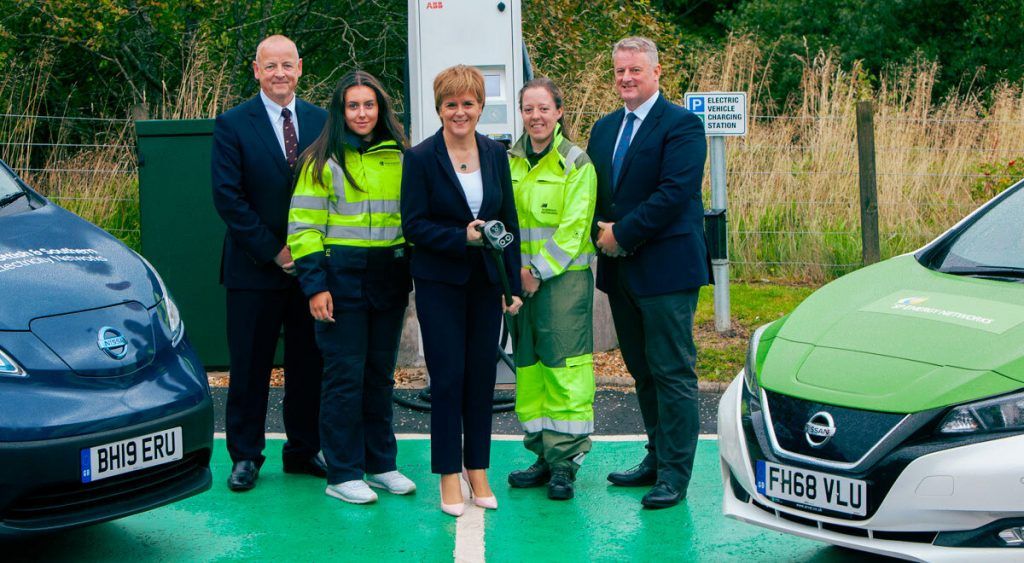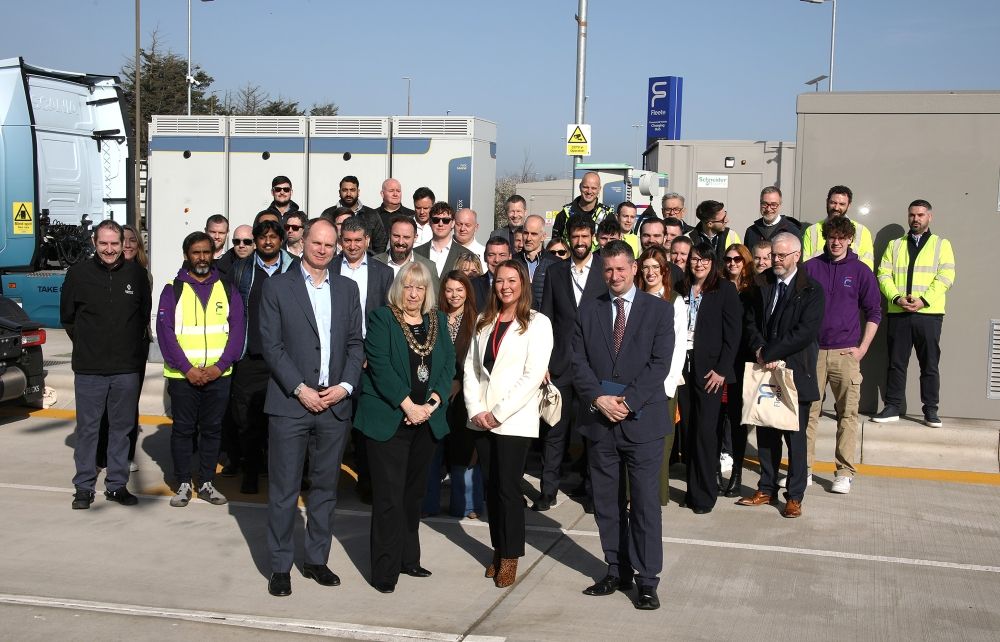Plans to install 180 EV charge points across 40 areas in Scotland could deliver around £2.6m in savings for consumers, it has been claimed.
The move from Project PACE, a partnership between the Scottish Government and SP Energy Networks (SPEN), aims to increase the number of public charge points by 200% across Lanarkshire – and 14% across the country as a whole.
The project will see savings of £30,000 to £60,000 on grid connect costs for each of the new locations or as much as £2.6m of taxpayer cash saved.
The energy network claims that if the project was rolled out across other areas it would save £26m overall – and if across all of the UK the sum rises to £310m.
Scott Mathieson, Director of Network Planning and Regulation at SP Energy Networks said: “The creation of more publicly available electric vehicle charging locations is vital to meeting both Scottish and UK Government net zero targets so we’re proud to be leading the way through Project PACE.
“SPEN invested £500,000 in the optioneering phase to ensure we chose optimum locations for the project, which will be of most use for drivers and help deliver substantial savings for the communities we serve.”
“Project PACE is a blueprint for a more successful collaborative roll out of public EV chargers. The learnings from this trial could be applied across other areas of the country to ensure every local community has access to EV charging points which will help boost a green economic recovery. No community should be left behind in the transition to net zero.”
Michael Matheson, Cabinet Secretary for Transport, Infrastructure and Connectivity, said: “The Electric Vehicle Strategic Partnership between the Scottish Government, including Transport Scotland, Scottish and Southern Electricity Networks and SP Energy Networks, is transforming the way we deploy and deliver charging infrastructure.
“This effective partnership working, using specialist knowledge, is radically improving the speed, effectiveness and efficiency of the rollout of electric vehicle charging infrastructure. This is key to responding to the climate emergency and transitioning to a net zero economy as we seek to phase out the need for new petrol and diesel cars and vans by 2032.”












